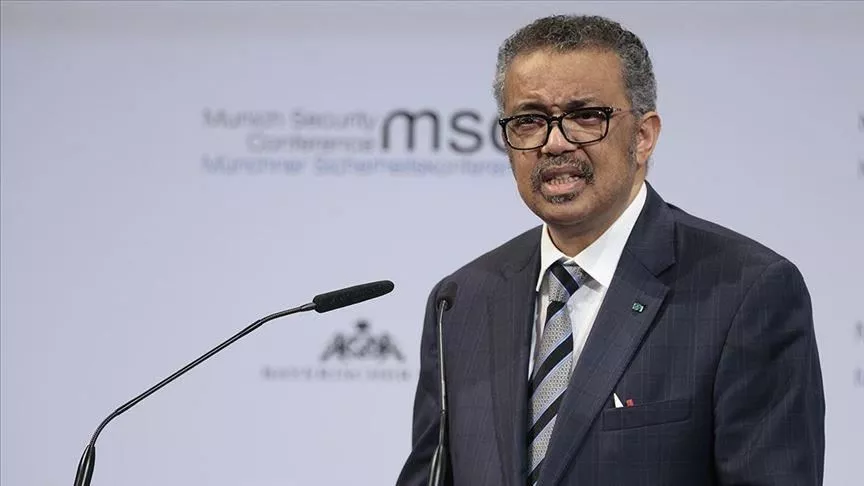WHO slams scientists for Africa vaccine testing notion
Hangover from 'colonial mentality' has to stop, says World Health Organization chief
GENEVA: The head of the World Health Organization (WHO) condemned on Monday in the "strongest possible terms" two French scientists who suggested Africa be used as a testing ground for a vaccine against the novel coronavirus."Africa cannot and will not be a testing ground for any vaccine. We will follow all the rules to test any vaccine or therapeutics all over the world, using exactly the same rule," said Tedros Adhanom Ghebreyesus, an Ethiopian national, referring to comments made last week by the scientists.
Speaking at a WHO video press conference, he said: "Whether it's in Europe, Africa, or wherever, we will use the same protocol."
Japan to declare state of emergency over coronavirus
"And the hangover from a colonial mentality has to stop," said Tedros, adding: "WHO will not allow this to happen."
Without mentioning any country by name, Tedros also noted that some states have recommended or are considering the use of both medical and non-medical masks in public to prevent the spread of COVID-19, an issue raised at each WHO press conference.
The US made this recommendation over the weekend.
"First and foremost, medical masks must be prioritized for health workers on the front lines of the response. We know medical masks can help to protect health workers, but they're in short supply globally," he said.
Tedros said WHO was concerned that the use of medical masks by the general population could exacerbate the shortage of these specialized masks for the people who need them most.
"In some places, these shortages are putting health workers in real danger," he said.
Tedros added that WHO continues to recommend the use of medical masks, respirators and other personal protective equipment for health workers.
"In the community, we recommend the use of medical masks by people who are sick and those who are caring for a sick person at home," said Tedros.
WHO has suggested wider use of medical and non-medical masks to stem the spread of the coronavirus, saying it was issuing guidance and criteria to support countries in making this decision.
Pakistan welcomes intl' human rights organisations’ call for release of detained IOK prisoners
"For example, countries could consider using masks in communities where other measures such as cleaning hands and physical distancing are harder to achieve because of lack of water or cramped living conditions," said Tedros.
Since appearing in Wuhan, China last December, the novel coronavirus has spread to at least 184 countries and regions, according to figures compiled by the US-based Johns Hopkins University.
Over 1.3 million cases have been reported worldwide, with the global death toll nearing 74,000, and more than 275,800 recoveries.


COMMENTS
Comments are moderated and generally will be posted if they are on-topic and not abusive.
For more information, please see our Comments FAQ